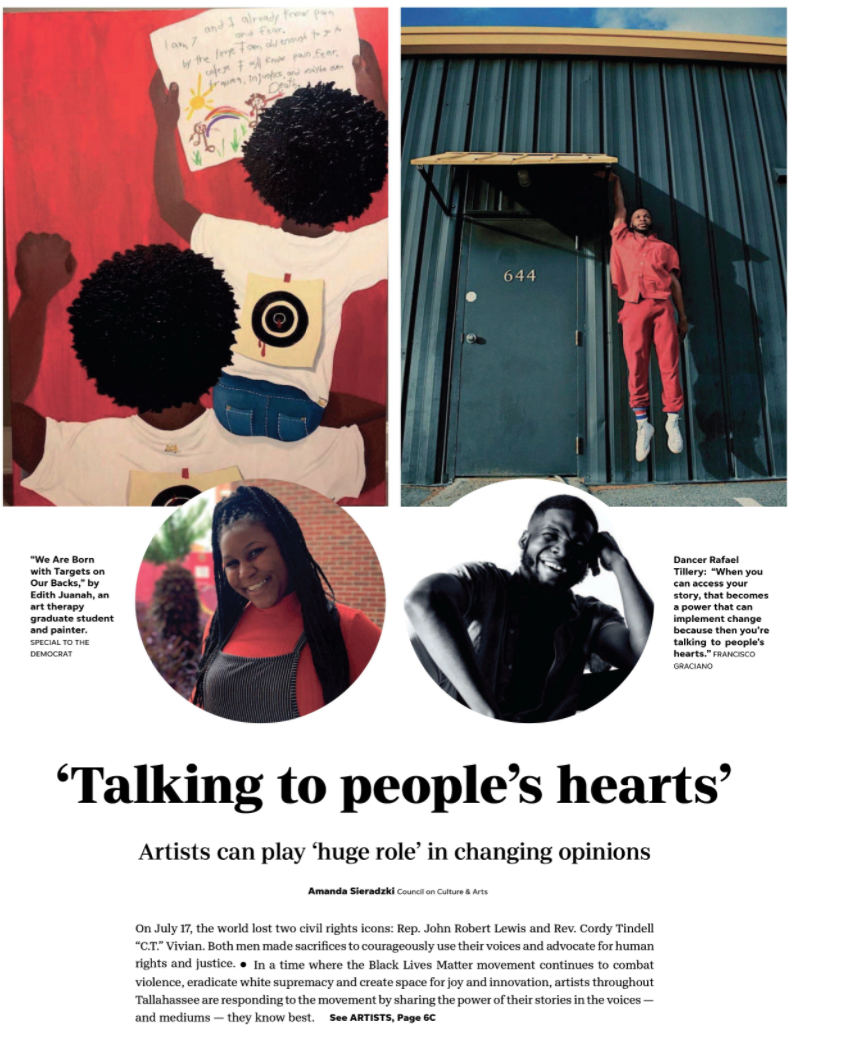
On July 17, the world lost two civil rights icons: Rep. John Robert Lewis and Rev. Cordy Tindell “C.T.” Vivian. Both men made sacrifices to courageously use their voices and advocate for human rights and justice.
In a time where the Black Lives Matter movement continues to combat violence, eradicate white supremacy and create space for joy and innovation, artists throughout Tallahassee are responding to the movement by sharing the power of their stories in the voices — and mediums — they know best.
Rafael Tillery wields his power with the swipe of an arm, the bounce of a knee. In June, he attended the Tallahassee protests against police brutality in the wake of George Floyd’s murder. A self-identifying Black, queer, male artist, Tillery is an MFA candidate at FSU’s School of Dance. He said he wasn’t planning to improvise a dance in the middle of the protesters that day, and yet when the moment arrived he began to move and a drummer walked up to accompany him.
He has grappled with what dance means amidst a pandemic and fight for rights. Tillery stood inside the building tension of the swelling crowd, keeping a careful eye on armed officials pacing rooftops while he was confronted with derogatory yelling and the sounds of oncoming traffic. He took a breath as movement bubbled to the surface — movement rooted for him in gospel, afro-diasporic dance, vogueing and childhood memories.
“When you can access your story, that becomes a power that can implement change because then you’re talking to people’s hearts,” says Tillery. “As artists we have the power to speak to people’s hearts that goes beyond politics. It’s just being brave enough to share that story genuinely and with vulnerability.”
“My biggest goal is to speak for those who are unable to do so for themselves,” affirms Edith Juanah, an art therapy graduate student and painter. “I’ve always used my artwork to communicate and explore feelings, and I like the idea of conjuring up emotions in the viewer. It’s those conversations that will start to ignite change and bring people together.”
[Edith Juanah is an art therapy graduate student and painter.]
Juanah’s artwork is heavily influenced by Jean-Michel Basquiat, who focused on the dichotomies of integration versus segregation and used artwork as a tool to comment on power structures and systems of racism. Juanah’s own acrylic style draws on relationships to trigger an onslaught of emotions in the viewer.
Read the rest of the story by visiting the Tallahassee Democrat
or read more by downloading the article here